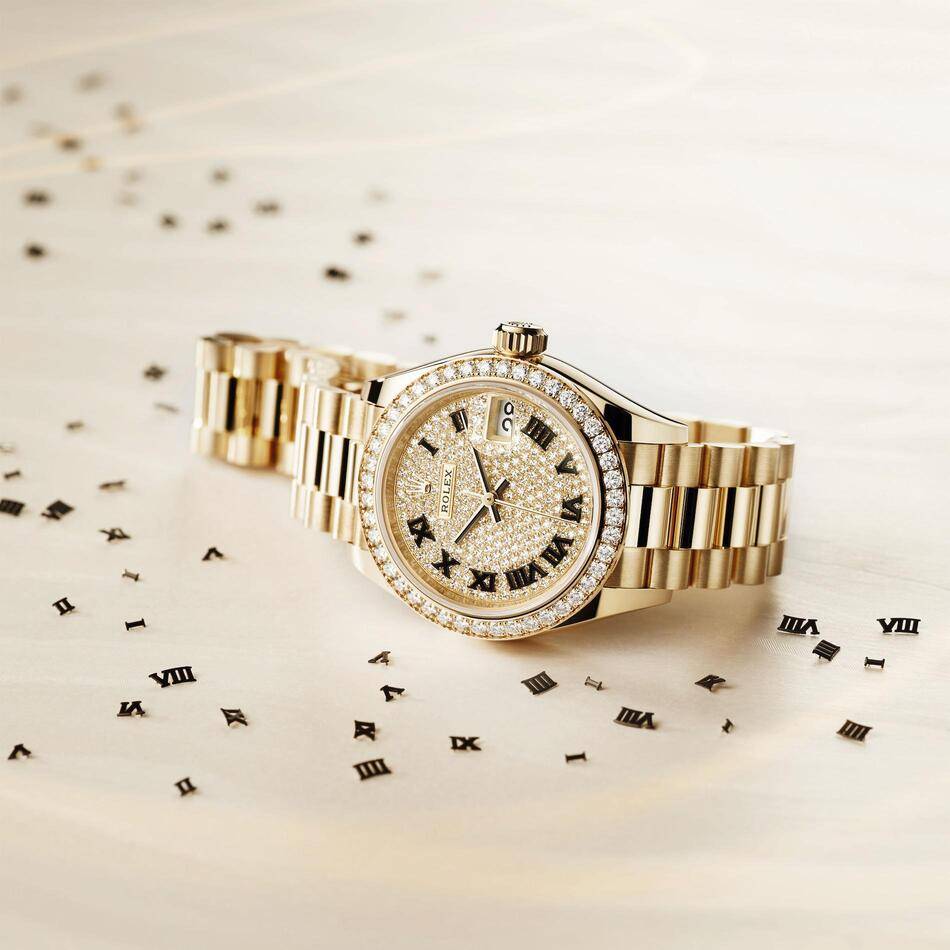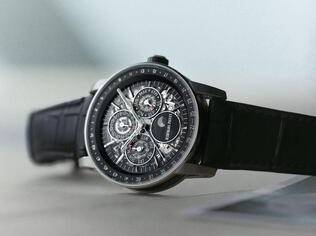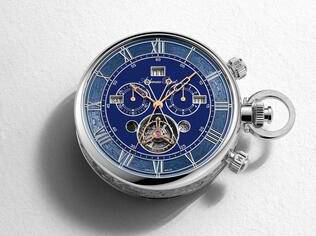The earliest wristwatches Rolex made specifically for women were dainty, jewellery pieces intended for wear during formal occasions. And yet, for at least a century — almost as long as the company has been in existence — women have sought out Rolex watches for reasons extending far beyond their aesthetic beauty.
One early devotee was a young secretary and stenographer named Mercedes Gleitze, who in 1927 became the first Englishwoman to swim the channel between Britain and France. During her ten-hour journey, Gleitze tracked time with a Rolex Oyster wristwatch, putting its claims of efficient waterproofing to the ultimate test. When Gleitze arrived safely on European shores, the watch emerged from the water in perfect working order.

Rolex celebrated this success by advertising and publicising the fact that Gleitze had completed the challenging swim wearing a waterproof wristwatch created by the brand. This successful practical test of the product did much to lift the profile of the company, which at the time was just a little over two decades old, having been founded in 1905.

A pioneer of the waterproof wristwatch, Rolex's founder Hans Wilsdorf had recognised that, as watches moved from the pocket to the arm, they would be more exposed and susceptible to moisture and dust. He developed timepieces that featured a hermetically-sealed case which provided optimal protection for the movement, allowing the wearer to perform previously impossible tasks while wearing a watch — such as swimming. Thus, the Rolex Oyster was born.
In the 1940s and 1950s, Rolex created watches that would very rapidly become timeless classics of the Oyster Perpetual collection. In celebration of the company's 40th anniversary in 1945, Rolex launched the first self-winding waterproof chronometer wristwatch to display the date in a window at 3 o'clock on the dial – the Oyster Perpetual Datejust.
Initially available only in 18 ct yellow gold, by the 1950s Rolex had expanded the iterations of the Datejust to include steel and Rolesor (steel and gold) variants, and in 1957, created a version exclusively for women: the Lady-Datejust. While the men's Datejust bore a 36 mm diameter, the women's was given a substantially smaller, 26 mm case.

The first Lady-Datejust, launched in 1957
During this era, Rolex watches were favoured by many of the world's most notable women. For example, the renowned marine biologist Dr. Sylvia Earle wore the Lady-Datejust as she pioneered ocean exploration and conservation, across a career stretching back to the 1960s.

Earle told an interviewer, "Most watches are looked upon as jewellery or, for us explorers, as an equipment to tell the time, but my watch to me has a much deeper meaning." She explained, "The concept of Rolex is supporting exploration, conservation, the arts and the best that humans can be. So for me, wearing it, it's like a signature, you care about those things too, you share something with the ethic of caring."

Countless photographs exist from the 1960s and 1970s showing a Lady-Datejust adorning the arm of Grace Kelly, the glamorous Hollywood movie star who became Princess Grace after marrying Rainier III, Prince of Monaco, in 1956. Their daughter, Princess Caroline, would also be seen frequently sporting a Lady-Datejust.

In addition to the mid-century ‘Jet Set', Rolex watches were extensively utilised by professional aviators at this point in history (as they remain today). One such high-flier was Sheila Scott, the multiple record-breaking female pilot who was the first Briton to fly solo around the world. In an interesting parallel with Princess Grace, Scott raised the funds to gain her pilot's license and purchase her first aircraft, an ex-RAF biplane, by working as a film and TV actress and model in the 1950s.

In more recent years, the Lady-Datejust has accompanied remarkable women in achieving their quest for excellence. Women such as the doctor and mountaineer Christine Janin, the first Frenchwoman to climb Everest; sitar player, producer and composer, Anoushka Shankar; professional tennis players Sloane Stephens and Garbiñe Muguruza; champion skiers Lindsay Vonn and Lara Gut-Behrami; and golfer Lexi Thompson, currently eighth in LPGA rankings.
During the lockdowns of 2020, esteemed Bulgarian soprano Sonya Yoncheva collaborated with Rolex on a series of webcast concerts, 'Perpetual Music' with the goal of raising spirits during this isolated, trying time. With a Lady-Datejust on her wrist, Yoncheva said, "Culture is as essential to life as the food we eat or the air we breathe… art is vital."

Beijing-born pianist Yuja Wang says when she looks at her Datejust, she is unfailingly struck by "the beauty, the elegance, the passion, precision, perfection — it's similar to what I'm striving for in classical music." Equally, she says, "it reminds me of how precious time is". For women seeking to carry a similar perpetual reminder on their arm, there's no better choice than the Rolex Oyster Perpetual Lady-Datejust.

In a 28 mm Oyster case, today's evolution of the Lady-Datejust is just marginally larger than the watch that was first launched in 1957. The current line includes several iterations with the distinctive fluted bezel that is a signature of the Datejust. Originally, the fluting of the Oyster bezel had a functional purpose: it served to screw the bezel onto the case helping to ensure the waterproofness of the watch. It was therefore identical to the fluting on the case back, which was also screwed onto the case for waterproofness, using specific Rolex tools. Over time, the fluting became an aesthetic element, a genuine Rolex signature feature. Today the fluted bezel is a mark of distinction, always in gold.

For those that prefer timepieces adorned with precious stones, the Lady-Datejust is currently available in myriad gem-set bezel incarnations. These include 18 ct yellow gold with diamonds and a mother-of-pearl dial; and white Rolesor with diamond-set bezel and a pink dial.

To add to this offering, this year saw the release of two new models in 18 ct yellow gold or white gold, with a diamond-paved dial, diamond-set bezel and bracelet.

An Everose Rolesor version with a unique rosé-colour dial and an Oyster bracelet completes the 2021 novelties in the Lady-Datejust collection.

These, like all current Lady-Datejust timepieces, are powered by the self-winding mechanical movement calibre 2236, entirely developed and manufactured by Rolex. Designed for a lady who stands for elegance and precision, grace and resistance, beauty and performance, the Lady-Datejust is a perfect alchemy of form and function and remains as the ultimate classic timepiece for women across generations.



















